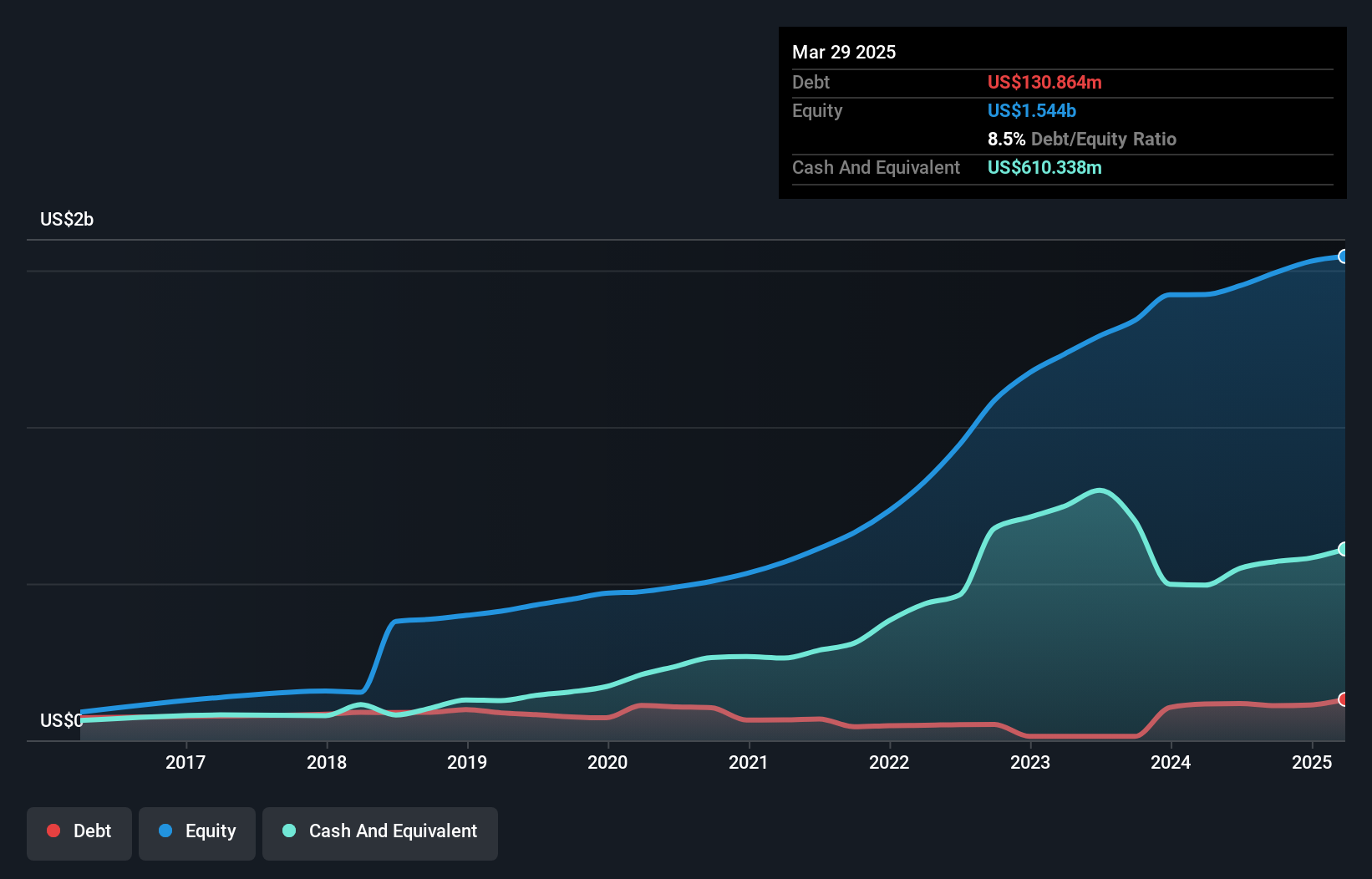These 4 Measures Indicate That Champion Homes (NYSE:SKY) Is Using Debt Safely
David Iben put it well when he said, 'Volatility is not a risk we care about. What we care about is avoiding the permanent loss of capital.' So it seems the smart money knows that debt - which is usually involved in bankruptcies - is a very important factor, when you assess how risky a company is. Importantly, Champion Homes, Inc. (NYSE:SKY) does carry debt. But the real question is whether this debt is making the company risky.
Why Does Debt Bring Risk?
Debt is a tool to help businesses grow, but if a business is incapable of paying off its lenders, then it exists at their mercy. If things get really bad, the lenders can take control of the business. While that is not too common, we often do see indebted companies permanently diluting shareholders because lenders force them to raise capital at a distressed price. Of course, debt can be an important tool in businesses, particularly capital heavy businesses. The first step when considering a company's debt levels is to consider its cash and debt together.
How Much Debt Does Champion Homes Carry?
As you can see below, at the end of March 2025, Champion Homes had US$130.9m of debt, up from US$116.0m a year ago. Click the image for more detail. However, it does have US$610.3m in cash offsetting this, leading to net cash of US$479.5m.

How Strong Is Champion Homes' Balance Sheet?
Zooming in on the latest balance sheet data, we can see that Champion Homes had liabilities of US$451.3m due within 12 months and liabilities of US$114.7m due beyond that. Offsetting these obligations, it had cash of US$610.3m as well as receivables valued at US$84.1m due within 12 months. So it can boast US$128.5m more liquid assets than total liabilities.
This surplus suggests that Champion Homes has a conservative balance sheet, and could probably eliminate its debt without much difficulty. Succinctly put, Champion Homes boasts net cash, so it's fair to say it does not have a heavy debt load!
View our latest analysis for Champion Homes
In addition to that, we're happy to report that Champion Homes has boosted its EBIT by 40%, thus reducing the spectre of future debt repayments. When analysing debt levels, the balance sheet is the obvious place to start. But it is future earnings, more than anything, that will determine Champion Homes's ability to maintain a healthy balance sheet going forward. So if you're focused on the future you can check out this free report showing analyst profit forecasts.
Finally, a company can only pay off debt with cold hard cash, not accounting profits. While Champion Homes has net cash on its balance sheet, it's still worth taking a look at its ability to convert earnings before interest and tax (EBIT) to free cash flow, to help us understand how quickly it is building (or eroding) that cash balance. During the last three years, Champion Homes produced sturdy free cash flow equating to 77% of its EBIT, about what we'd expect. This cold hard cash means it can reduce its debt when it wants to.
Summing Up
While we empathize with investors who find debt concerning, you should keep in mind that Champion Homes has net cash of US$479.5m, as well as more liquid assets than liabilities. And it impressed us with its EBIT growth of 40% over the last year. So is Champion Homes's debt a risk? It doesn't seem so to us. Another factor that would give us confidence in Champion Homes would be if insiders have been buying shares: if you're conscious of that signal too, you can find out instantly by clicking this link.
Of course, if you're the type of investor who prefers buying stocks without the burden of debt, then don't hesitate to discover our exclusive list of net cash growth stocks, today.
Have feedback on this article? Concerned about the content? Get in touch with us directly. Alternatively, email editorial-team (at) simplywallst.com.
This article by Simply Wall St is general in nature. We provide commentary based on historical data and analyst forecasts only using an unbiased methodology and our articles are not intended to be financial advice. It does not constitute a recommendation to buy or sell any stock, and does not take account of your objectives, or your financial situation. We aim to bring you long-term focused analysis driven by fundamental data. Note that our analysis may not factor in the latest price-sensitive company announcements or qualitative material. Simply Wall St has no position in any stocks mentioned.
 Wall Street Journal
Wall Street Journal